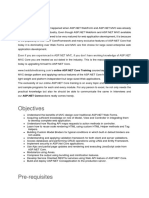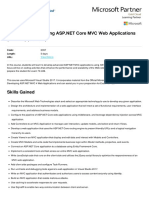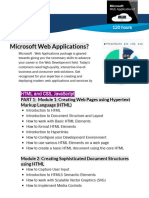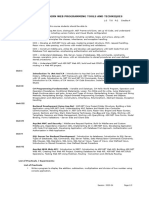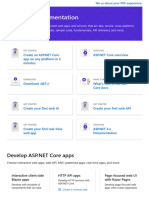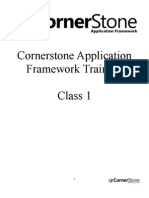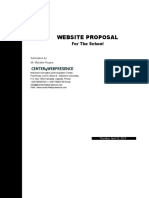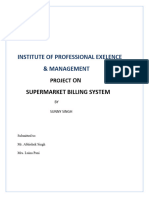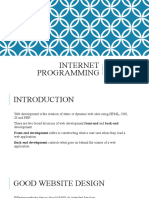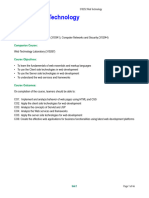0% found this document useful (0 votes)
11 views8 pagesName of The Course: Training Duration: - 40 Hours
The Developing ASP.NET Core MVC Web Applications course spans 40 hours and equips developers with the skills to create modern web applications using ASP.NET Core MVC architecture. The course covers essential topics such as dynamic web page creation, database interaction with Entity Framework, and application deployment while emphasizing best practices for security and performance. It is suitable for developers with prior programming experience and includes hands-on labs to reinforce learning.
Uploaded by
mainak.basudevCopyright
© © All Rights Reserved
We take content rights seriously. If you suspect this is your content, claim it here.
Available Formats
Download as PDF, TXT or read online on Scribd
0% found this document useful (0 votes)
11 views8 pagesName of The Course: Training Duration: - 40 Hours
The Developing ASP.NET Core MVC Web Applications course spans 40 hours and equips developers with the skills to create modern web applications using ASP.NET Core MVC architecture. The course covers essential topics such as dynamic web page creation, database interaction with Entity Framework, and application deployment while emphasizing best practices for security and performance. It is suitable for developers with prior programming experience and includes hands-on labs to reinforce learning.
Uploaded by
mainak.basudevCopyright
© © All Rights Reserved
We take content rights seriously. If you suspect this is your content, claim it here.
Available Formats
Download as PDF, TXT or read online on Scribd
/ 8




